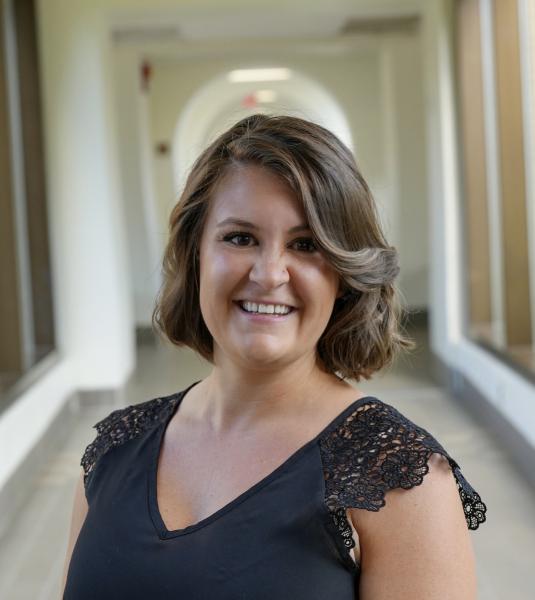American Psychological Association Division 50

Where do you work and in what capacity?
I currently work as a graduate teaching assistant in the Applied Behavior Analysis Department at the University of Kansas in Lawrence. In this role, I support an undergraduate course focused on drugs, addiction, and behavior.
Where did you do your training?
I am currently a third-year in the joint Master of Public Health (MPH) and Behavior Analysis Program PhD at the University of Kansas under the mentorship of Dr. Michael Amlung and Dr. Elly Leavens. Prior to this round of graduate school, I completed my Bachelor of Science with a focus in Medical Biochemistry at the University of British Columbia followed by a Master of Arts in Applied Behavior Analysis through the University of Kansas.
What are your research interests?
My research interests center on exploring substance use behaviors, reinforcing value, and motivations for use in the neurodivergent population. I am also interested in applications of contingency management for substance use treatment and how community activities or hobbies can be used to support recovery and provide alternative forms of reinforcement.
What are your clinical interests?
My current clinical work includes providing behavioral services that teach both academic and life skills to teens with intellectual and developmental disabilities. I have also been working with the Kansas Health Institute to develop a tool that schools can use to create action plans to address vaping and tobacco use. I am very keen on collaboration with other disciplines and professions as well as people with lived experience to develop effective treatment and long-term support for people who have substance use disorders.
What are your policy/advocacy interests?
I am passionate about reducing stigma, increasing access to treatment and care, and incorporating a holistic multidisciplinary care. I am an advocate for harm reduction and think it is important to meet people where they are at whether that is providing safe use supplies and education, withdrawal management or long-term recovery options. I would like to see a shift from short term treatment that only addresses immediate symptoms to a model that supports long term behavior change.
How did you become interested in addictive behaviors?
I spent many years working as a paramedic in various cities across British Columbia. During this time, I saw firsthand the significant effects of addiction. It became clear that the current system was not well suited to serve these people. I would see the same patients for overdose calls repeatedly, sometimes multiple times in the same shift. A common story was that people were interested in treatment and addressing their addiction but couldn’t get in to a facility or had bad experiences with hospital staff and didn’t want to go back. This motivated me to pursue further training in behavioral science as well as public health so in addition to supporting people to change their substance use behavior, I can advocate for policy and process changes to better meet the needs of people with addiction.
What motivated you to join the Society of Addiction Psychology (Division 50)?
My supervisor, Dr. Amlung, encouraged me to attend CPA in Denver in 2024. It was my first time at the conference, and it was an incredible experience connecting with others who are passionate about research and developing innovative ways to support people with addiction. This inspired me to join APA Division 50 and submit a poster for the next CPA. At the conference, I presented some of my recent work on alcohol demand and motivations for use within the neurodivergent population, which led to many meaningful conversations. When I had the opportunity to serve as the student editor for the SoAP Box, I couldn’t say yes fast enough. I am truly excited to be part of this community and contribute to the dissemination of knowledge.
Any other information that you would like to share about yourself with other SoAP members?
I have a lively little sidekick named Edgar, an energetic American Hairless Terrier. We love going on runs together or cozying up under a heated blanket. He even has his own wardrobe of outfits, despite his dislike of anything that goes over his head, once he’s dressed, he proudly struts around like he owns the place!

Resources are available for those struggling with addiction and numerous effective treatments exist. Whether you are looking for help for yourself or a loved one, we encourage you to seek out help.